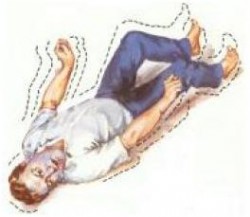10 Effects of Mescaline You Should Be Aware Of
Mescaline’s primary effects work to distort the mind’s perception of reality. Once ingested, the effects of mescaline interfere with cognitive and emotion-based processes by triggering the release of neurotransmitter chemicals throughout the brain.
Mescaline produces strong hallucinogenic effects, leaving users completely unaware of their surroundings. According to Columbia Health, a dose as small as .3 grams can bring on hallucinatory experiences that last for up to 12 hours. Over time, mescaline compromises a person’s physical and psychological health in dangerous ways.
If you or someone you know uses mescaline on a regular basis, here are 10 effects of mescaline you should be aware of –
Physical Withdrawal Effects of Mescaline
Once a person starts experiencing withdrawal effects of mescaline, the body has developed a physical dependence on the drug’s effects. With frequent and ongoing drug use, physical dependence develops as the brain chemical functions start to breakdown.
In effect, mescaline forces the release of neurotransmitter chemicals from certain key brain cell sites. National Institute on Drug Abuse, the larger the dose ingested, the greater the effect on the brain’s chemical system. Since neurotransmitter production directly affects central nervous system functions, withdrawal effects become more so apparent as brain chemical imbalances worsen.
With continued mescaline use, brain cell sites lose their sensitivity to the drug’s effects. This too can bring on withdrawal symptoms unless a person increases the dosage amounts along the way.
In the process, the brain develops an increasing tolerance for mescaline. These interactions drive the abuse and addiction cycle. Tolerance levels will continue to increase for as long as a person keeps using.

One potential effect of Mescaline is seizures.
Over time, mescaline withdrawal effects become more and more intense and happen with greater frequency. Here are five of the most often experienced physical withdrawal symptoms:
- Seizures
- Tremors
- Difficulty breathing
- Incoherent speech patterns
- Muscle stiffness
Psychological Effects of Mescaline
The psychological effects of mescaline lie at the heart of the drug’s addiction potential. Any drug able to alter brain chemical processes can leave lasting effects on a person’s overall psychological make-up in terms of his or her thinking patterns, priorities and motivations.
A mescaline-induced high can last for up to 12 hours. During this time, incredibly large amounts of neurotransmitter chemicals course through the brain. With frequent drug use, the effects of mescaline essentially carve out new chemical pathways in the brain.
Under these conditions, psychological problems can easily take root as brain chemical imbalances underlie most all forms of psychological disorder. Over time, mescaline effects leave users with a diminished functional capacity as the drug all but destroys vital communication channels throughout the brain.
Here are five psychological effects of mescaline to watch out for:
- Ongoing paranoia
- Short attention span, inability to focus
- A distorted sense of time and space that persists long after using the drug
- Inability to distinguish between past and present events
- Psychotic-like episodes
Cautionary Note
Chronic long-term mescaline users face a high risk of developing a condition known as hallucinogen persisting perception disorder. People affected by this condition experience recurrent flashbacks of past drug “trips.” Flashback episodes can happen at any time making it difficult to function in everyday life. At this point, the effects of mescaline have caused considerable brain damage.
- Related Articles
 Harmful Effects of Peyote -
Peyote is a strong drug, and its effects are highly unpredictable, as well as long-lasting. When on peyote, a person may harm themself or others, or get into accidents.
Harmful Effects of Peyote -
Peyote is a strong drug, and its effects are highly unpredictable, as well as long-lasting. When on peyote, a person may harm themself or others, or get into accidents.  Are Peyote Effects Harmful? -
Peyote is a powerful hallucinogen which has highly unpredictable effects. These effects can be harmful under the right circumstances.
Are Peyote Effects Harmful? -
Peyote is a powerful hallucinogen which has highly unpredictable effects. These effects can be harmful under the right circumstances.  15 Reasons to Stop Using Mescaline Today -
Learn the many dangers and consequences of abusing mescaline, and how to get treatment help.
15 Reasons to Stop Using Mescaline Today -
Learn the many dangers and consequences of abusing mescaline, and how to get treatment help.  Can Peyote Be Addictive? -
Peyote isn't commonly abused due to its intense psychological side effects, making it unlikely for anyone to form an addiction.
Can Peyote Be Addictive? -
Peyote isn't commonly abused due to its intense psychological side effects, making it unlikely for anyone to form an addiction.  Is Peyote Addictive? -
While peyote - and most other hallucinogens - is not widely considered to be addictive, the drug can cause a psychological dependence to develop, and there isn't a safe way to use it.
Is Peyote Addictive? -
While peyote - and most other hallucinogens - is not widely considered to be addictive, the drug can cause a psychological dependence to develop, and there isn't a safe way to use it.